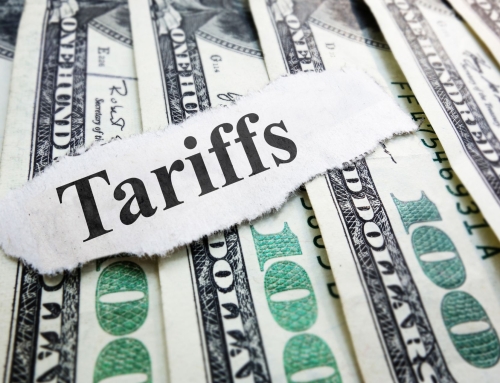Meeting with Acting Commissioner McAleenan
In a conference call with CBP earlier this month, the trade was informed that drawback claimants would not be able to file claims under the Trade Facilitation and Trade Enforcement Act (TFTEA) for the February 24, 2018 statutory date, as the Automated Commercial Environment (ACE) was not going to be prepared in time, even as regulations appear to be on track to hit the target date. The programming for this initiative was deemed “post core ACE” and thus, had no allocated funding. On Monday of this week, Dave Corn, who is the co-chair of the Drawback and Duty Deferral Committee at AAEI, Michael Cerny (also co-chair of the DDD committee at AAEI) and Bobby Waid, an active member on the AAEI DDD committee, had an opportunity to meet with Acting Commissioner Kevin McAleenan, Assistant Commissioner Brenda Smith, Deputy Executive Assistant Commissioner Cynthia Whittenburg and other key members of CBP to discuss this situation. In our meeting, Acting Commissioner McAleenan clarified CBP’s position, saying that it was the intent of CBP to meet the February 24th deadline for regulations and programming so that claims can be filed in ACE for TFTEA. While the budget is a concern, the money will be allocated so that this programming can resume over the summer. If the primary process is not in place, contingency plans will be developed as needed.
NAFTA Renegotiation
With so many changes in drawback, journalists from International Trade Today (ITT) reached out to Comstock and Theakston for input regarding TFTEA and the potential for renegotiation of the North American Free Trade Agreement (NAFTA). Our Dave Corn was featured in articles that were posted in ITT publications on May 11th and May 12th that focused on the benefits of the impact for NAFTA renegotiation for drawback claimants. The article publication was timely, as President Trump sent a letter to Congress on 5/18 setting the clock for NAFTA renegotiation, which can take place after 90 days from the notification. The Trump administration has made it clear that they intend to modernize the agreement. The Duty Drawback Coalition that has formed has received support from specific members of Congress and different members of the trade to take part in this renegotiation process to eliminate the drawback restrictions that hold American companies at a disadvantage compared to their counterparts in Canada and Mexico. A letter from the Duty Drawback Coalition was sent to the newly minted U.S. Trade Representative Robert Lighthizer, just one day after his confirmation.
With the recent activity and opportunity to discuss these issues that are important to our clients, we look forward to the continued discussions to keep drawback moving forward through the 21st century.






